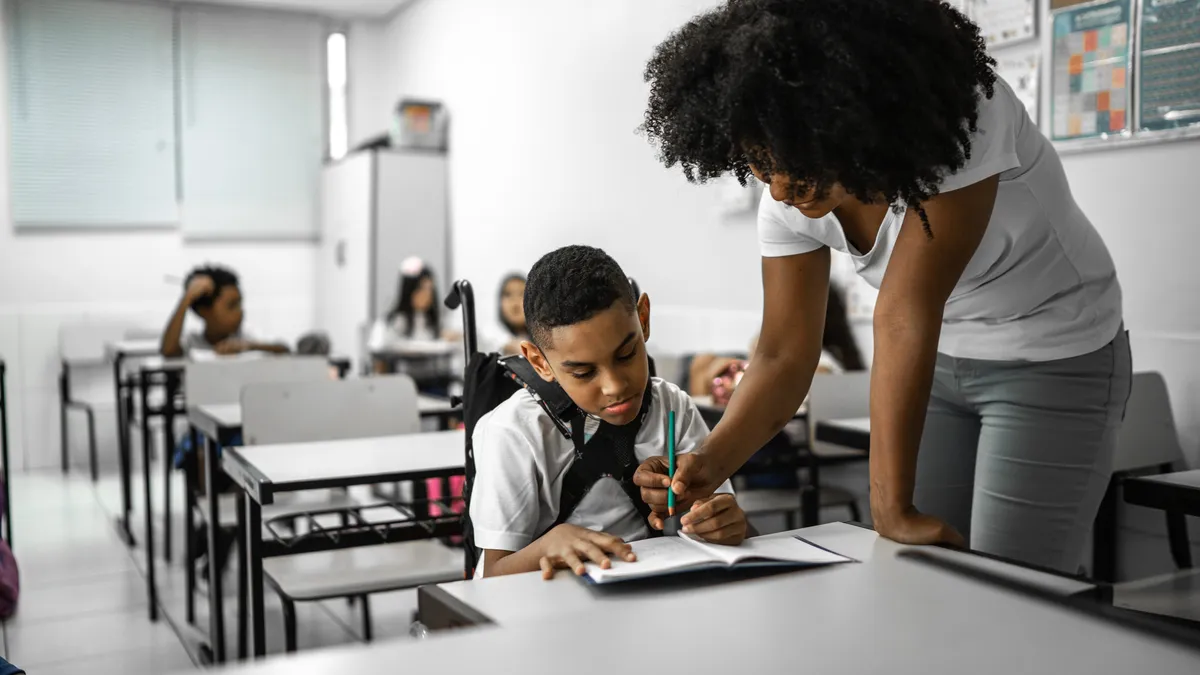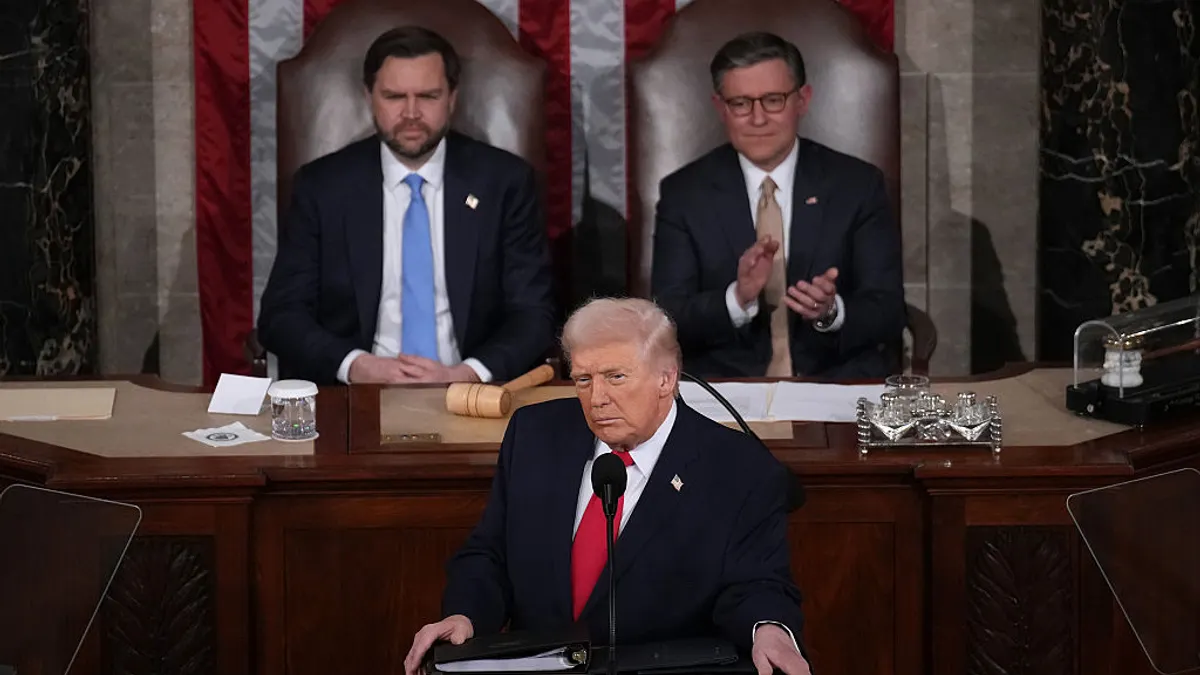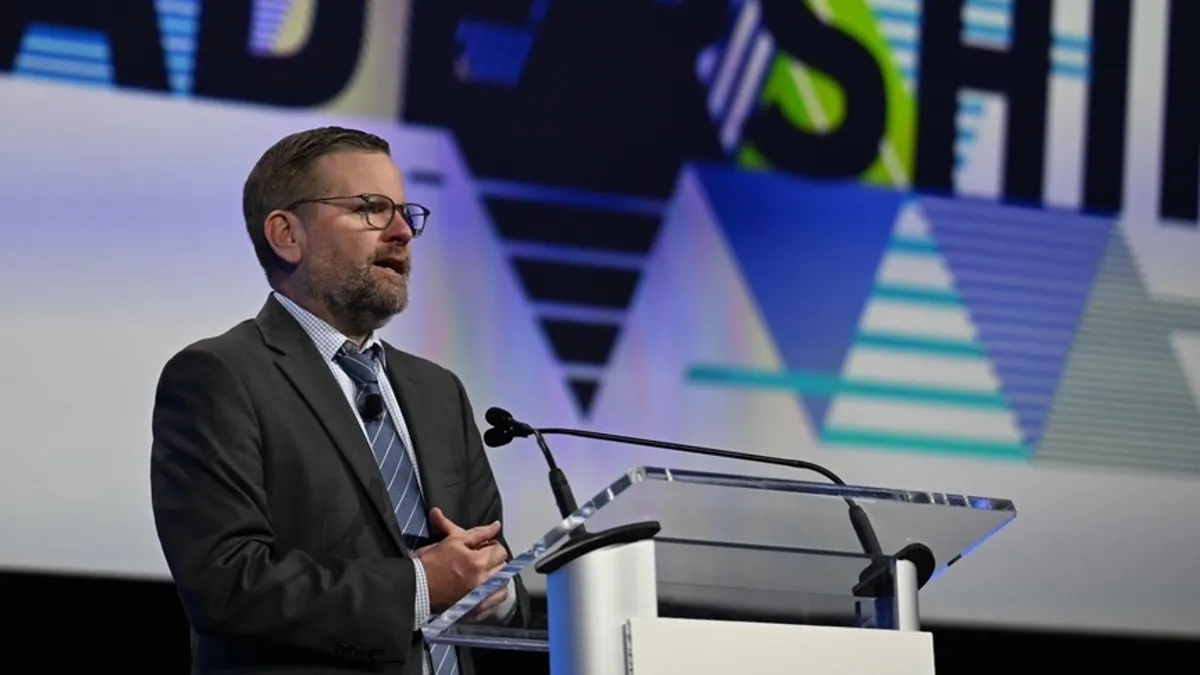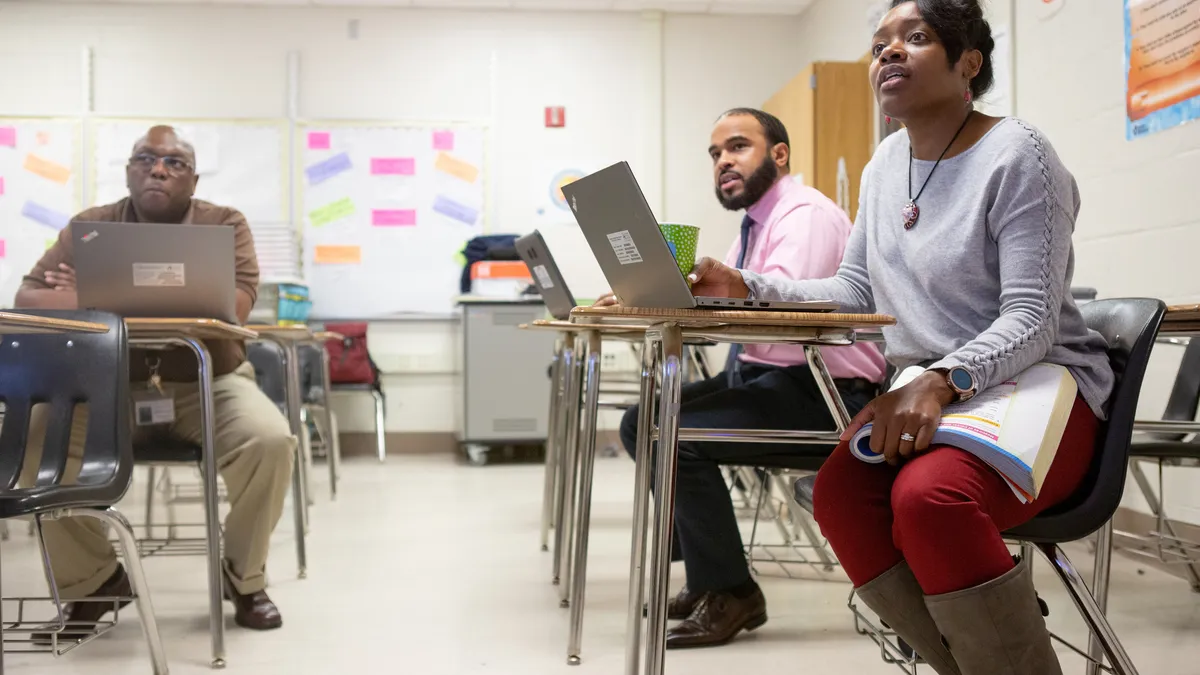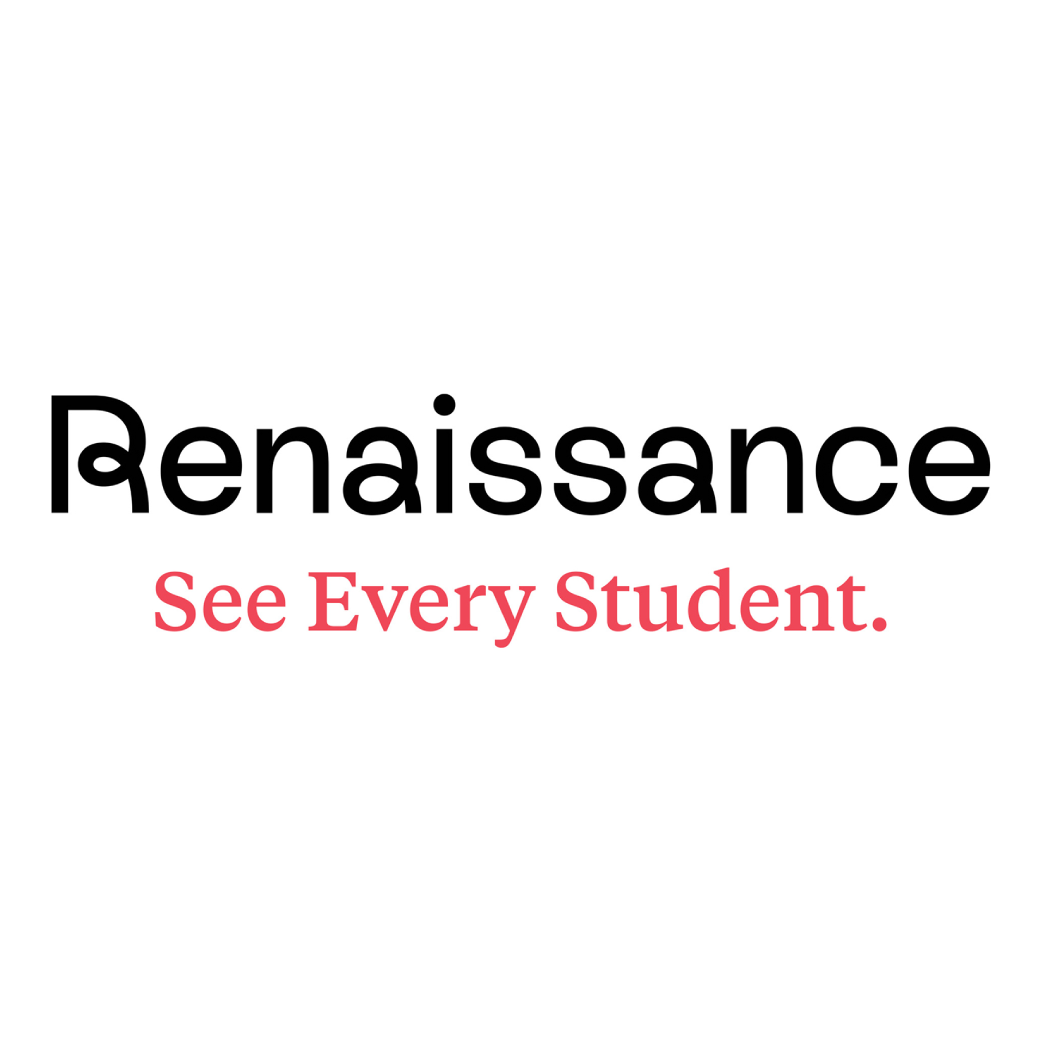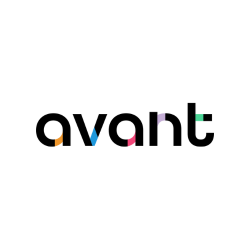AUSTIN, TEXAS — Last week at SXSW EDU, Reading Is Fundamental (RIF), the nation's largest nonprofit for children's literacy, announced that it is now the exclusive home of Skybrary, an interactive library of high-quality digital books and video resources from LeVar Burton Kids.
Skybrary is based on the Peabody Award-winning TV series "Reading Rainbow" that Burton hosted from 1983 to 2009. Its resources for children ages 2 to 11 include more than 900 unique books, 150 video field trips, a parent dashboard, interactive animations to enhance the reading experience, and a K-3 supplemental Skybrary School service with standards-aligned lessons and teacher management tools.
Education Dive had a chance to catch up with Burton and RIF President and CEO Alicia Levi at the show to talk about the digital divide, providing students with culturally relevant material and what keeps Burton passionate about spreading literacy.
EDUCATION DIVE: With a goal of engaging young readers and fostering a lifelong love of learning, how do you ensure that you're still reaching the students who might not have that same level of digital access but who still need that exposure the most?
LEVAR BURTON: What you're talking about is the digital divide, right? Which is solvable. It's bandwidth. It's access. Those are hardware issues. If the modern era has demonstrated anything, it's that we can make stuff. We make devices pretty good.
What's more important to me, or equally important to me, is the content that's on the devices and what we're feeding our children in terms of their growth and development. What's the nourishment we're giving them?
And you're right. The digital divide is real. It exists. It's a problem that needs to be solved, but that's imminently solvable. That's a money issue. We just need to reallocate some resources in our national budget and we'll be fine. Once we come to our senses and make some adjustments in terms of how we spend our tax dollars, that will go away.
ALICIA LEVI: I agree with that. I would just add that the divide is real no matter what the medium. It's a print problem. It's a digital problem. It’s a device problem. It's really about equity and access. So, no matter what the platform is, the challenge for us is how do we cross that divide?
BURTON: And when we're talking about equity and access, we're talking about social issues that are governed by our laws and where we choose to focus our energy and attention and resources.
Speaking of resources, one of the things that came up in [Wednesday's] keynote was the importance of connecting students with culturally relevant reading material. What sort of resources are there within Skybrary and Reading is Fundamental to potentially line up students with that kind of material?
BURTON: With the Skybrary service, we've always, and will continue to, strive[d] to bring the most diverse literature to the widest audience possible. It's difficult for a child to develop a healthy self-image unless they see themselves reflected in the literature that they read and the media that they consume. It's impossible.
LEVI: This is where the marriage of Skybrary and Reading is Fundamental is so remarkable, because organizations like ours can address those questions at scale. We have access to publishers across the spectrum. We have broader reach. We have the ability to activate people around this very critical issue. What's the gap or the problem in the marketplace, and how do we get those people moving to create content to solve that problem?
That's where the nation's leading children's literacy organization, RiF, and where LeVar Burton Kids and Skybrary really play such a critical role. We're not gonna solve every problem for every child, but boy, we can add a voice —
BURTON: We’re part of the solution.
LEVI: That’s exactly right. And we hear people talking about it. That question came up in our session. It is a critical issue. Who better than leaders in this space, like LeVar and Reading is Fundamental, to tackle it and to figure out a way that we can get to a solution for it.
In a lot of social-emotional learning conversations, there's talk of how to infuse those skills across various subjects. And one of the most obvious subjects that comes up is English language arts because of the opportunities within literature to make those connections. What sort of opportunities are there, in your opinion, to bring in critical thinking, creative thinking and empathy?
When considering questions about both culturally relevant reading materials, but also literary classics like "To Kill a Mockingbird” or “Tom Sawyer,” where there might be things that aren't necessarily as culturally acceptable nowadays as they were at the time a book was written?
BURTON: I would put “Tom Sawyer” in that category. I don't know what I would put “To Kill a Mockingbird” in that same category. I actually saw “To Kill a Mockingbird” on Broadway last night, and I've got to say, the story is [just] as relevant today. It's scarily relevant today.
LEVI: I would say this: I would broaden your question a little bit and say the reason that reading is the foundational and fundamental element for all learning — it's because it's not just about ELA, right? It extends learning in science and math. If you're literate, then you'll be more able to understand math, to understand science.
BURTON: It’s the cornerstone of all learning.
LEVI: And it builds those fundamental foundational elements that allow for social-emotional development, that allow for knowledge gaining in any subject or category. That is the critical element. You can't build a house without a solid foundation. You cannot learn without the solid foundation of reading.
LeVar, given your past success in "Roots" and "Star Trek," you could likely easily just make a living out of appearing on the pop culture convention circuit alone. I'm wondering what continues driving your passion to spread the joy of literature and learning to students.
BURTON: This is what I do.
LEVI: You said to me it’s who you are. You didn't choose this.
BURTON: It chose me.
Your mother was an educator, right?
BURTON: Yeah. All the women on my mom's side of the family were educators and social workers. My mom had careers as both. And all the men on my father's side are ministers and soldiers. I studied for the priesthood earlier in my life. I had no intentions of wanting to go to war. The draft ended my junior year of high school. And I wasn't called. I feel like I'm kind of built to do what it is I do.
LEVI: It's amazing how one person can just activate and motivate and engage generations of kids. That's phenomenal. It's phenomenal. I'm so glad literacy chose you.
BURTON: I am, too.





